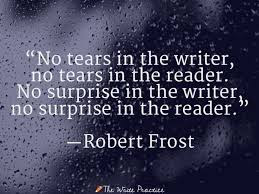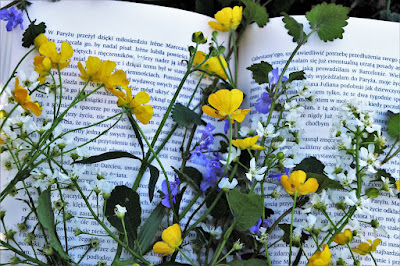Today is the 80th anniversary of D-Day, commemorating the Allied invasion of France on June 6th, 1944. It was the breakthrough needed, the beginning of the ending of WWII. The following was written in 2013, published in 2014. I repost it as a reminder of the horrific price we pay for wars. My visit to Normandy left a deep impression on me. I hope young people today still learn of this part of history in their classes.
Remembering D-Day on the Normandy Beaches
By Nancy Julien Kopp
Today marks the 81st Anniversary of D-Day when Allied troops landed in Normandy. It was the beginning of the end of WWII. I think it is worth commemorating each year. The essay below features my visit to Normandy in 2013.
Visiting the Normandy Beaches
My husband and I were nearing the end of a river cruise in France which brought us from Paris to Normandy, famed for its Norman cows and fine dairy products as well as being the place where the Allied Invasion began during WWII. Our river ship docked at the final port--Honfleur, a picture postcard kind of town. Now, we were close to the highlight of the two-week cruise that had begun in Paris. We’d spend a full day at the D-Day beaches of Normandy, something Ken and I had looked forward to since booking months earlier.
At breakfast in the ship’s dining room that next morning, we sensed an air of anticipation that had not been evident in our other sightseeing tours on this trip. We were not the only ones looking forward to this day when we would view the beaches where the landing took place on June 6, 1944. The ensuing battle resulted in the Allied Forces turning the tide of the long-fought war that threatened so many, not only in France but other countries as well.
Being mostly senior citizens, the people in our tour group knew the history of the battle well. One man had even been there with the British navy shortly after the initial invasion. Only 16, he lied about his age to join the navy and was among the first who arrived after the beaches were taken. This now-elderly gentleman had spoken about his experience one evening on the river ship. That morning, as the bus took us from ship to the beaches, I watched this man who sat silently while we rode through the Normandy countryside. What thoughts were going through his mind, what memories were returning one by one? I wanted to ask but out of respect for what must have been an emotional time for him, I kept my silence.
We filed quietly off the bus on that cold, wet March morning. There was none of the usual chatter and good-natured teasing on this day. We were a solemn, respectful group as we were introduced to our local tour guide. Her scarf whipped wildly in the strong wind, and like us, she wore hat, gloves and a warm coat. The skies were gray which somehow seemed fitting for this place where the remnants of battle and death remained even these 69 years after the fact.
The pillboxes where the German artillery faced the beaches remain today. I slipped and slid down a muddy incline to see inside one where parts of the big guns remained. Looking out to the beaches, I was immediately struck by the incongruity of those in the pillboxes versus the men on the open beaches on that summer morning so long ago. An old cliché seemed most fitting. They were “sitting ducks.” I shivered with both the thought and the sharp wind that found its way through my warm jacket.
The Allied Forces came to liberate France from German occupation, to push the German forces back to their own country. The Canadians landed at Juno Beach, the British at Sword and Gold Beach. Our American troops came ashore at both Omaha and Utah Beach. Paratroopers landed first followed by amphibious landing craft manned by Navy and Coast Guard personnel. Thousands of men with one goal—take the beaches and move on.
Gnawing fear must have been in the belly of each man but they surged forward with many falling on the beach. More than a thousand died on Omaha Beach alone. Others continued to dodge the constant gunfire and scaled precarious cliffs to reach the German strongholds.
As the tour guide talked, I thought of the men I knew who had fought in this war of so long ago—my uncle who had been an Air Force pilot, my best friend’s uncle who had endured the hardships of a prison camp, and my dad’s cousin whose plane blew to pieces before he could escape. I thought of my father-in-law who served in Paris after the liberation and came home safely thanks to the courage of the men who fought on D-Day, those who carried General Eisenhower’s order with them. “Full victory. Nothing else.”
Our tour guide told us of a U.S. Army veteran who had been on another of her tours. On the morning of the invasion, he was in a landing craft that held 32 men. 31 of them were violently seasick. By the time they landed, they were covered in vomit with no choice but to rush the beach and dodge the artillery fire. That was only one of nearly 7,000 boats that hit the five beaches early that morning. I shivered yet again but didn’t know if it was because of the cold misty rain or the stories she related.
Our next stop was the Normandy American Cemetery and Memorial, located not far from the beaches. In gratitude, the government of France granted use of the land, in perpetuity, as a permanent burial ground. We walked through the immaculate grounds, viewing the choppy waters of the English Channel just beyond. Nearly 10,000 American soldiers are buried here, a Latin cross or a Star of David marking each grave.
We gathered in the light rain at the Memorial area which features a 22-foot statue called “The Spirit of American Youth Rising From the Waves.” A representative from the cemetery addressed our group before leading a short ceremony to honor those who had sacrificed so much in this place. Everyone faced the wildly waving American flag, hand on hearts. Cold raindrops mixed with the warm tears that fell as I listened to a recording of our national anthem followed by a volley of gunshots and finally the playing of “Taps.” The lump in my throat would allow me no words, nor were any needed.
As the group dispersed, Ken and I walked to the edge of the cemetery close to the sea. The rain had finally ceased. We gazed at the gray sky and the gray water, empty now save for the ghosts of 69 years earlier. We have heard about the Normandy Beaches and D-Day for most of our lives. We’ve seen pictures, watched movies depicting that day. But being there and hearing the personal stories brought reality like nothing else. What struck me as we walked silently back through the cemetery was that we humans didn’t learn from the horrors of WWII. We’ve continued to send our young men and women to fight in multiple wars since.
At home, we fly our American flag with pride every June 6th to honor those who fought and those who didn’t come home. After visiting Normandy, that day will take on even greater significance. Veterans of the D-Day battle dwindle year by year. Before long, there will be none left, so it will be up to the next generation and the next to keep the memory alive. It is my great hope that this year’s 70th Anniversary will spark some interest among all ages for this commemorated day.







.jpg)

















